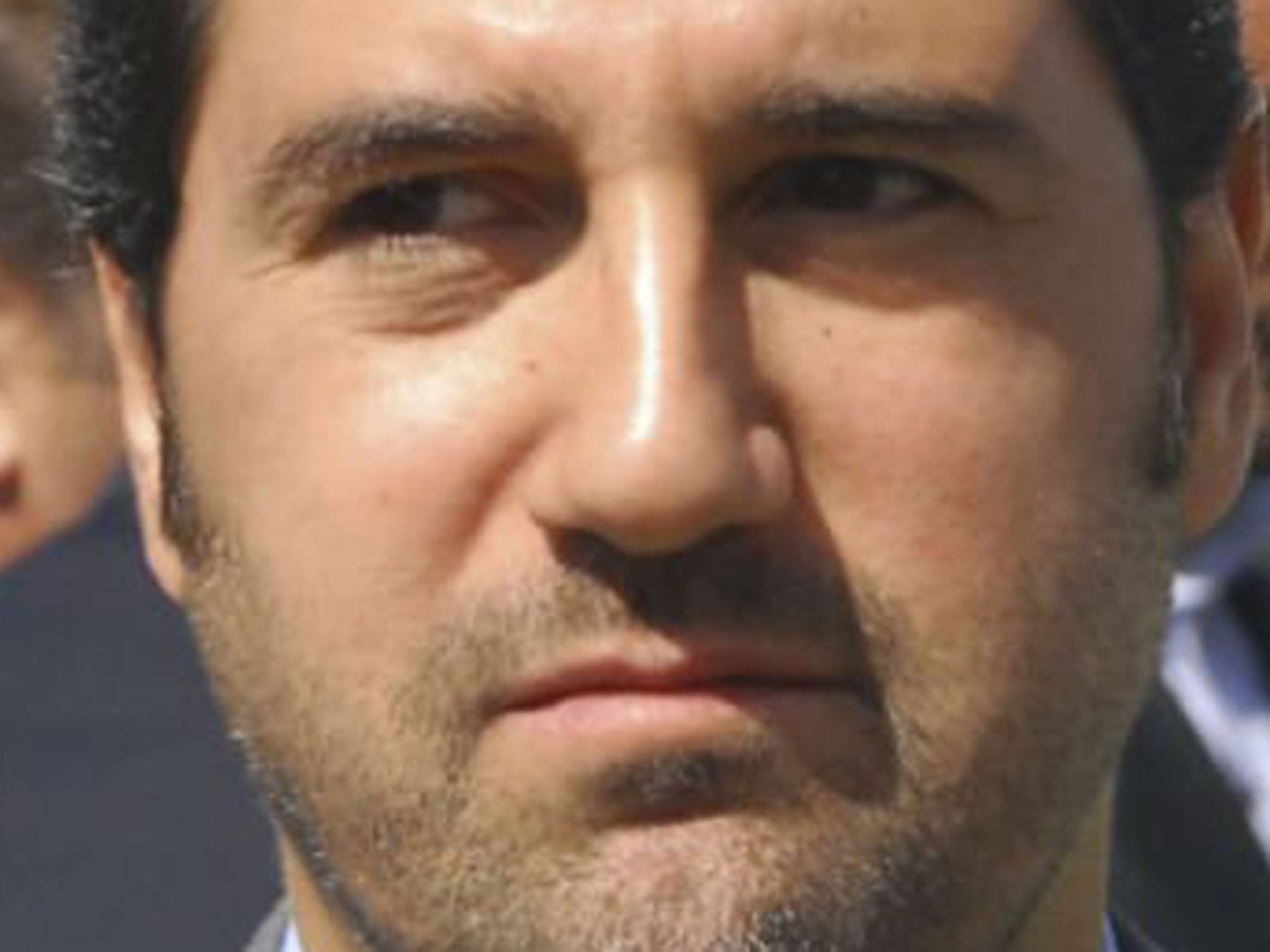Mossack Fonseca ‘worked with Assad ally Rami Makhlouf even after Syrian war started’
Assad's first cousin Rami Makhlouf was described as 'the poster boy for corruption'

Your support helps us to tell the story
From reproductive rights to climate change to Big Tech, The Independent is on the ground when the story is developing. Whether it's investigating the financials of Elon Musk's pro-Trump PAC or producing our latest documentary, 'The A Word', which shines a light on the American women fighting for reproductive rights, we know how important it is to parse out the facts from the messaging.
At such a critical moment in US history, we need reporters on the ground. Your donation allows us to keep sending journalists to speak to both sides of the story.
The Independent is trusted by Americans across the entire political spectrum. And unlike many other quality news outlets, we choose not to lock Americans out of our reporting and analysis with paywalls. We believe quality journalism should be available to everyone, paid for by those who can afford it.
Your support makes all the difference.The firm at the centre of an international tax-avoidance scandal continued to work with a wealthy financier of Bashar al-Assad even as the Syrian army used lethal force against unarmed civilians.
Rami Makhlouf, a first cousin of the Syrian president, became an emblem of crony capitalism in Syria and was described in a US diplomatic cable as “the poster boy for corruption” in the country.
Worth an estimated $5bn before the Syrian conflict, his business empire included the country’s largest mobile phone network along with interests in banking, retail and duty free outlets. It has been suggested that he previously controlled as much as 60 per cent of the Syrian economy.
In May 2011, two months after the start of the uprising against the Syrian government, he was made the subject of European Union sanctions for providing “funding to the regime allowing violence against demonstrators". He and his brother had already been on the US sanctions list for years.
However, the law firm at the centre of a massive leak, dubbed the Panama Papers, waited until September 2011 to sever ties with Mr Makhlouf’s companies – almost six months after the start of the uprising against the Syrian President and the heavy crackdown that ensued.
According to documents obtained by a group of global news outlets, Mossack Fonseca, the world’s fourth largest offshore law firm, rejected the advice of its own compliance monitors to end its dealings with him in January 2011, as protests were sweeping the Arab world.
One compliance officer wrote: “I believe if an individual is found on a sanction list, then this is a serious red flag and we should make every effort to disassociate ourselves from them.”
Although the company was not legally bound to adhere to US sanctions, it was obliged to respond to EU measures that were extended in July 2011 to the British Virgin Islands, where Mr Makhlouf’s firms were based. It was not until 6 September, by which point an estimated 2,000 people had been killed in Syria, that the company finally decided to cut ties with Mr Makhlouf’s companies.
The documents also appeared to show that the British bank HSBC was reluctant to end its relationship with the businessman before the eruption of the conflict in Syria. An email from the Geneva office of Mossack Fonseca said that the bank was “comfortable” with having him as a customer despite US sanctions.
HSBC told The Guardian that the allegations were “historical” and said that the bank had implanted reforms to ensure that it worked closely with authorities to “fight financial crime and implement sanctions“. Mossack Fonseca said that it “never knowingly allowed the use of our companies by individuals having any relationship with North Korea, Zimbabwe, Syria” or other countries that had been sanctioned.
The leaked files lift the lid on the tactics deployed by one of Syria’s most powerful men to hide and protect his wealth in offshore tax havens. They also turned the spotlight back on Soulieman Marouf, a Syrian businessman who lives in north-west London and has acted as a fixer for President Assad.
Mr Marouf was an investor in a Syrian TV channel accused of inciting violence against the civilian population and has assisted Mr Assad's wife Asma, arranging for designer homeware to be shipped to her from the London department store Harrods. In 2011, at a time when he held $48m (£34m) in Swiss accounts, his bank voiced concerns that he may be involved in money-laundering – although it is not known whether or not Swiss authorities found any evidence of this suspicion.
In 2012, he was added to the EU sanctions list, but he was later removed after launching a legal challenge.
The Panama Papers show that, following that decision, he continued to expand his property empire, using an offshore company to buy a flat in St John’s Wood, north London, for £500,000.
His lawyer said that there were “a number of reasons for utilising offshore companies, including the desire for privacy“, adding that UK tax authorities were aware of his financial arrangements.
Join our commenting forum
Join thought-provoking conversations, follow other Independent readers and see their replies
Comments